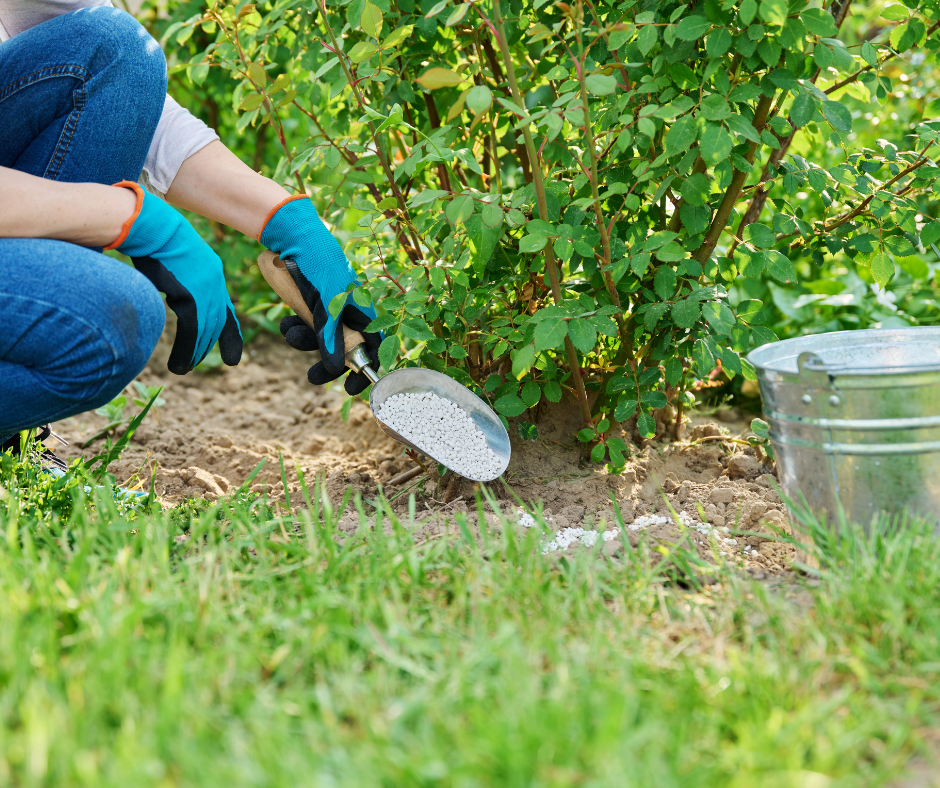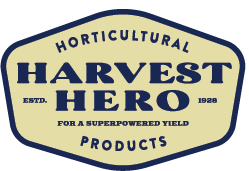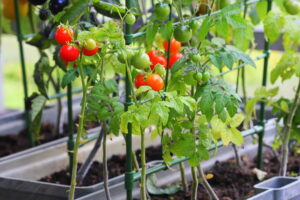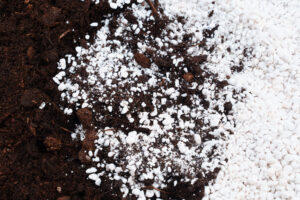How to Enhance Your Soil with Minerals

If you take supplements, you already know how important it is to add more minerals to your diet. The same goes for plants. Learn how to enhance your soil with minerals to offer plants the balanced nutrition they need for robust growth.
What Minerals Do Plants Need?
Plants glean nutrients from the soil, which should already contain organic material made up of minerals. However, soil can change overtime and lose its richness. Depending on what type of soil a plant is grown in, it may not contain all the beneficial microbes and minerals plants need to thrive.
Minerals are especially important for plants grown for food. The more nutrients soil has to pass on to the fruit or veggie, the more those minerals and nutrients are passed on to those who eat it. This is why it’s often necessary to add extra minerals to the soil to benefit the plant and person.
So, what minerals are needed? Most soil and fertilizers contain nitrogen, phosphorous, and potassium (N,P, and K). These are the basic elements needed for plants to survive. But if you want your plants to thrive, they need more. Like people, plants also need the following minerals:
- calcium (Ca)
- magnesium (Mg)
- potassium (K)
- sodium (Na)
- sulfur (S)
- iron (Fe)
- copper (Cu)
- manganese (Mn)
- boron (B)
- zinc (Zn)
- cobalt (Co)
- selenium (Se)
- silicon (Si)
- molybdenum (Mo)
A soil test or detailed analysis will tell you which nutrients may be missing. This information is helpful when trying to balance the soil and adding the necessary amendments for optimal soil nutrition and plant growth.
Keep in mind that different plants need different minerals. If you’re focused on one specific crop, be sure to research which minerals are best suited for your garden.
How to Add Minerals to the Soil
Adding minerals should be a slow, gradual process. Too much of a good thing can also negatively impact your plants. It’s easier to add minerals than remove them.
One of the easiest ways to add minerals to the soil is to fertilize. A balanced organic fertilizer contains some of the following ingredients:
- oil seed meal
- fish meal
- rock phosphate or bone meal
- Azomite or kelp meal
- agricultural gypsum
Gardeners have also used mineral additives—such as granite dust, greensand, and lime—to offer specific components to the soil in order to balance the nutrients and improve structure. For instance, granite dust and greensand add potassium while lime adds calcium and magnesium. It’s important to follow product directions for proper application. Testing the soil will give you a better idea of what’s needed.
Maintaining Mineral-Rich Soil
Once you’ve balanced your soil, the next trick is to keep it that way. Maintaining mineral-rich soil is made easy by composting what comes out of the garden to put it back in. This recycling process not only reduces waste, but it benefits plants and the environment.
There are other forms of organic matter that you can layer with your compost:
- Wood chips
- Straw
- Leaves
These elements not only act as a nutrient-holding, temperature-regulating, weed-preventing mulch, but they add minerals back to the soil as they break down.
But organic matter doesn’t work alone. Like previously stated, soil loses minerals overtime. Organic matter is constantly breaking down and needs reinforcements. New soil is needed to help maintain the proper structure of the growing media. Soil and organic matter work together to provide nutrients, air flow, and appropriate drainage for what’s planted.
Creating a Suitable Soil Structure
There are some minerals that do more for the structure of the soil to create an ideal growing environment. Perlite is a lightweight mineral that comes from volcanic obsidian. Its porous design make it ideal for enhancing soil mixtures. How?
- It doesn’t easily compact or break down
- Its sterile, neutral pH doesn’t contaminate the soil
- It comes ready to use
Even if your soil is balanced and nutrient-rich, it still needs proper air and water circulation to support robust root strength and plant growth. When you mix perlite into the soil, it leaves space for air and water to flow and properly drain. Since it doesn’t compact or decompose easily, perlite continues to benefit the soil and plants year after year.
With the right balance of minerals and stable soil structure, you’ll have an ideal environment for plants to thrive. Minerals are the key to soil health and plant vitality, so why not add some to your garden and experience the difference minerals make. Contact us for more information about our perlite product lines and how we can help you grow a better garden.



